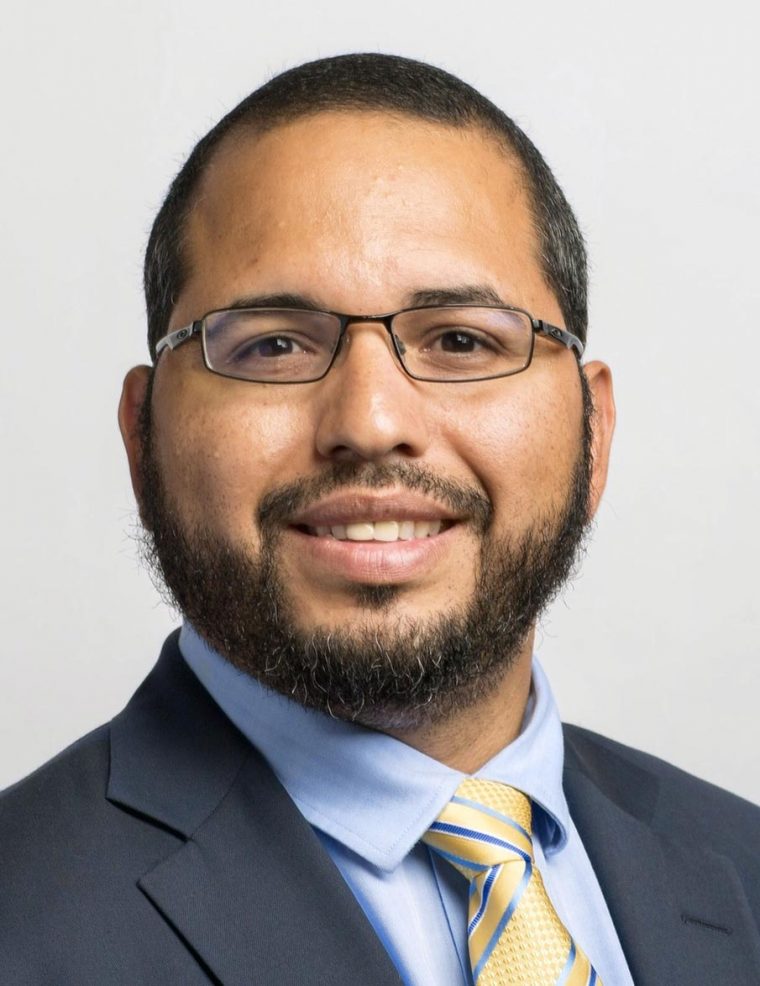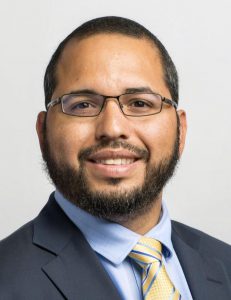Gonzalez Discusses How COVID-19 Has Changed College Admission


In late June, Wesleyan was among more than 300 colleges and universities to issue a joint statement, “Care Counts in Crisis: College Admissions Deans Respond to COVID-19,” organized by the Making Caring Common Project and the Harvard Graduate School of Education. The movement underscores a commitment to equity and to encouraging students to balance self-care, meaningful learning, and care for others. We spoke to Wesleyan’s Vice President and Dean of Admission and Financial Aid Amin Abdul-Malik Gonzalez ’96 about this shared commitment, as well as how admissions at Wesleyan has been affected by the COVID-19 pandemic.
The pandemic has obviously affected just about every realm of everyday life. How has it impacted high school students and the college admission process?
The disruptions caused by the pandemic have significantly set back students who were on a traditional trajectory of exploring colleges. Junior year spring is typically a launching point for students to research and visit schools, but this spring most college campuses were closed to visitors. With regard to their high school experiences, not only were academics and extracurricular activities interrupted—you can imagine the impact on student-athletes and talented musicians who plan to pursue these passions in college—but students were largely cut off from peers and adults who help them grow and think through important questions about their future. We’re also finding that inequities amongst students are being exacerbated by the pandemic, and that’s only going to become more pronounced over time.
How did Wesleyan come to sign on to the statement, “Care Counts in Crisis: College Admissions Deans Respond to COVID-19”? Why do you believe it is important that colleges and universities speak collectively on this matter?
Prior to joining Wesleyan’s Office of Admission, I worked in secondary school admissions, where there was a growing movement to bring non-cognitive aspects, such as emotional intelligence, resilience, and character, to bear on the admission process. Knowing that I felt strongly about this, a colleague invited me to join the “Care Counts in Crisis” statement. I believe that there is strength in numbers and that having a collective voice on issues like this is impactful for families who have neither time nor resources to make fine distinctions between many schools. Speaking with one voice, when possible, about important aspects of the college search and applications can help to demystify the process and level the playing field a bit for families.
Wesleyan has long had a holistic admission process that considers factors beyond an applicant’s grades and test scores. Practically speaking, how will Wesleyan’s evaluation of applications look different this year?
The Admission team has been and will continue to be engaged in important conversations throughout the summer to determine how to appropriately adapt our selection process to acknowledge the new space we are in. There has never been anything like this: it’s the perfect storm of health concerns, economic pressures, and social and political unrest. We are auditing our processes and thinking about the ways that our current practices may inadvertently perpetuate privilege and inequality. When we complete our audit, we’ll reaffirm best practices, introduce important initiatives, and clearly define institutional priorities against this new backdrop.
I’ll give one example of how the current situation could dramatically alter admission outcomes. Many colleges and universities have recently announced that they are adopting test-optional policies, which may result in increased applications, if not real access, for students. Since Wesleyan has been test-optional for several years, we’re experienced and confident in our ability to make good decisions in this space. One concern is that, despite limitations and access challenges, some schools will continue to use testing to award merit aid. (Wesleyan’s financial aid is need-based.) Whenever you remove one required component of applications from consideration, others become increasingly important. Although high school transcripts—grades and curricular rigor—are arguably the most critical, counselor and teacher recommendation letters also play important roles. I’m concerned that due to these trying times, their letters may not be as full, enthusiastic, or illuminating as they have been or could be. So, moving forward, admission officers will need to find new ways to triangulate and contextualize information that determine outcomes. How will schools gauge academic preparedness without spring junior-year grades, standardized test scores, and with potentially limited letters of recommendation and extracurricular profiles that don’t fully reflect students’ talents? It is likely that the aggregated effects of all of the above will result in systemic inequities being exacerbated. My team is working hard to ensure that despite limitations of information we give all students careful consideration, taking their specific contexts into account, and continue to value potential as well as production in our selection process.
Has Wes made any notable changes to the application process thus far?
We’ve made one change—fairly minor but a good and appropriate change—to applicant interviews. In normal years, we begin conducting evaluative on-campus interviews with senior interviewers beginning in late June through December. With campus closed to visitors at least through the summer, we have replaced these with what we’re calling WesChats: 30-minute, informal, informational conversations with student interviewers. They’re not tracked as part of the admission process, but are simply an opportunity for prospective students to learn more about Wesleyan. We plan to resume evaluative interviews starting in October, in order to give prospective students additional time to engage in helpful self-reflection in advance of having an evaluative interview.
At the present moment, travel is difficult and campus is closed to visitors, how can prospective students learn about and experience Wesleyan?
The WesChats I previously mentioned are a great way to learn about Wesleyan. We’re also offering one-on-one appointments with admission deans, and are participating in virtual college fairs around the world in conjunction with other institutions. We plan to roll out an interactive virtual tour in the near future. For now, it’s a lot of digital resources, but we recognize that not all students and families have equal access to the digital realm. To that end, we are in contact with high school guidance counselors and partners at community organizations to try to better understand how they’re reaching students and where there might be gaps. We’re also using print materials to share information with students, and I’m thinking about revisiting some old-school tactics like connecting via phone. We’re committed to leveraging every tool that we can to try to be as accessible as possible.
Is there any message you’d like to convey to prospective students who may be reading this?
Please know that we are committed to making good decisions and trying to understand students’ individual and family circumstances. We want students to have the opportunity to shine and to present themselves as fully and authentically as possible. This is far from an ideal situation, and it’s an imperfect process to try to distill an 18-year-old student down to the materials contained in a college application. With this in mind, we’re looking at not only what students have done, but what they have the potential to do when surrounded by the right resources and community. We believe young people have an abundance of potential and promise.

